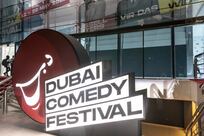Muslims have practised the rite of ablution before prayer for many hundreds of years, but in a mosque in Dubai the ritual is getting a modern and environmentally responsible twist. Thanks to a donation from Grohe, a company that supplies water appliances, the mosque's traditional taps have been replaced with devices that has reduced water use by half, by cutting flow from 18 litres of water per minute per tap to only six or seven. What's more, the flow automatically cuts off after 45 seconds. The innovation is an example that could be followed by householders across the UAE; on that scale, the impact it could have on the country's excessive consumption of water could be remarkable.
"We installed the new faucets in June," says Toufic Halabi of Grohe. "We will monitor the water use for a year and track the savings." The system works by installing aerators into the water pipes that introduce tiny air bubbles in the flow; this creates the impression of a strong, normal flow, but in reality uses much less water. Combined with flow limiters and electronic sensors, the flow from taps can be cut to 5.8 litres per minute.
Mr Halabi hopes hotels and public buildings will adopt the devices. "People in their homes might care a bit more about the amount of water they use, but they use between three and six times more when at public facilities and hotels," he says. The Environment Agency-Abu Dhabi is planning a campaign to install the installation of water-efficient devices for taps, showers and toilets in all buildings.
Mosques will be targeted first, then schools and homes, says Dr Mohammed Dawoud, manager of agency's natural resources department. Savings can also be made by buildings and irrigation systems being designed with efficiency in mind, says Sarfraz Dairkee, general manager of Al Khoury Engineering and chairman of the water efficiency subcommittee of the Emirates Green Building Council. A lot of waste, he says, is due to what he calls "obese designs" in irrigation systems, pumps and air-conditioning units. "Most of these systems are over-designed," says Mr Dairkee, adding that the approach has evolved because it saves time for engineers who do not calculate the real needs of their clients.
In recent years, the Government has demonstrated an interest in green buildings, which can bring significant water and energy savings. This has had some positive effect, says Mr Dairkee, but more needs to be done. "Once the [Dubai] Government issued a decree, people started at least listening about efficiency. Unfortunately now there is much talk but very little walk on this." vtodorova@thenational.ae




